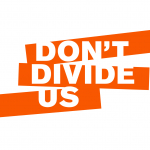Challenging contentious race content as a school governor
A London school governor decided he couldn’t ignore his unease with the school’s anti-racist training (presented by an external third-party anti-racist trainer). He offered his considered objections, and found others agreed. The trainer’s recommendations are not being adopted wholesale. We hope more governors will follow!
The local authority’s schools improvement partner enquired about ‘racial justice’ in a 2022 school development plan. The authority had also been offering racial justice training to governors. In line with this, the school organised for equalities training for staff, to be delivered by a specialist in this area.
In my capacity as school governor for equalities, I was invited to attend the training presentation. I approached it with an open mind, and found some positives in it, such as encouraging the celebration of physical differences, and highlighting positive role-models from ethnic minority groups within the classroom.
Lots of the presentation material, however, was contentious, and I made this clear in my report to the school governing body, which is customary following a ‘link-governor’ visit. I expressed my concerns about many aspects of the presentation, including the use of US-origin terminology in the presentation, the deployment of Critical Social Justice terminology such as ‘anti-racism’ or ‘global-majority’, and a contentious definition of racism that implied it was perpetuated by ‘systems’ and only ‘Black and Brown people’ could be victims.
My report highlighted some of the potential problems of the claims and suggestions of the presentation, and recommended that it be considered critically by governors. I stated that while those who worked in the school daily were best placed to judge which equalities interventions were most appropriate, duties to impartiality and the concerns of parents should also be considered.
Framing my concerns in this way was successful, and I received positive feedback for my report across the board. Most importantly, the report created an environment where both teaching staff and fellow governors felt confident enough to share similar criticisms and concerns about the content of the presentation, and did not feel the need to hastily implement any of its recommendations without due consideration.
I have found that being frank, honest and objective, identifying those who have similar views, and empowering them to express their discomfort, can be a powerful method of challenging ideological content delivered within a school.

